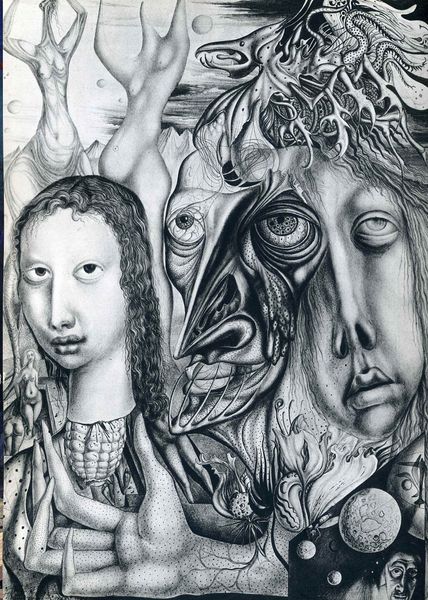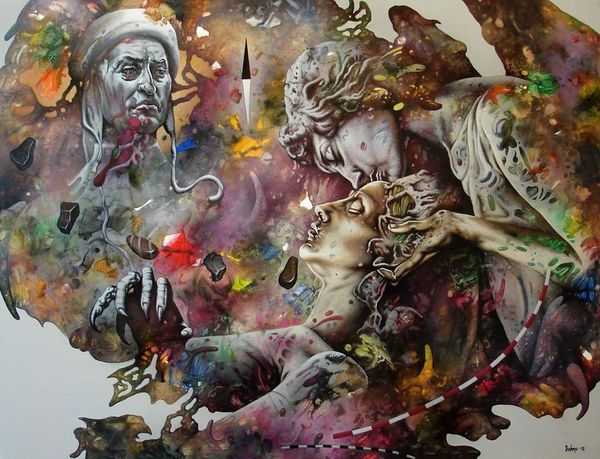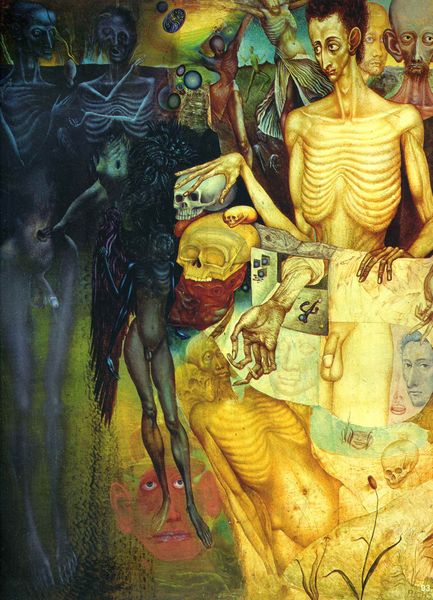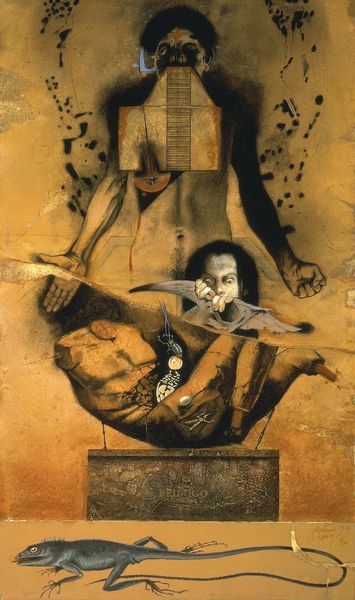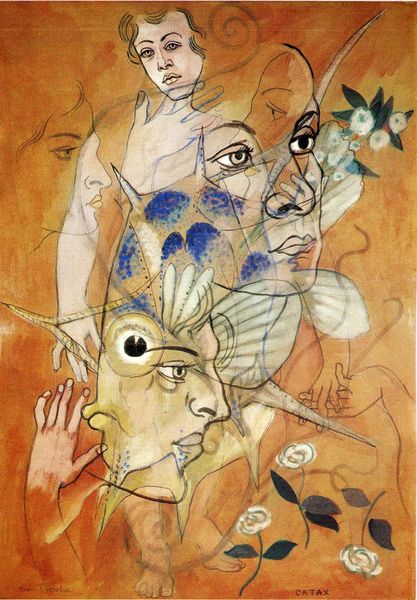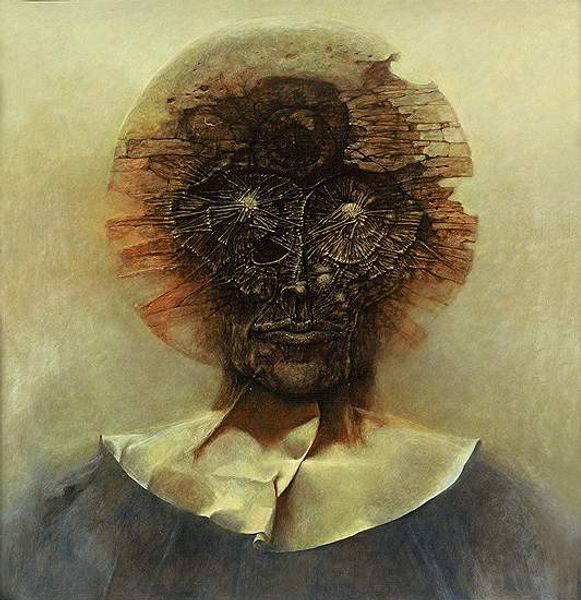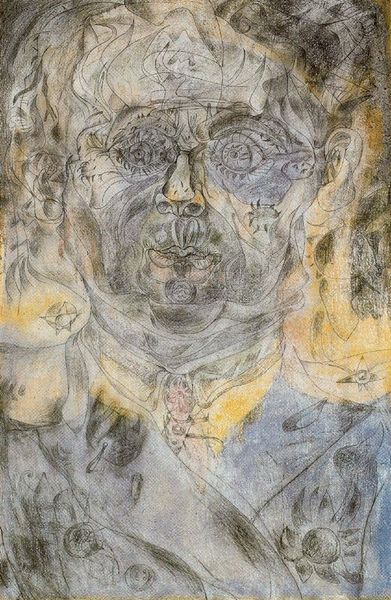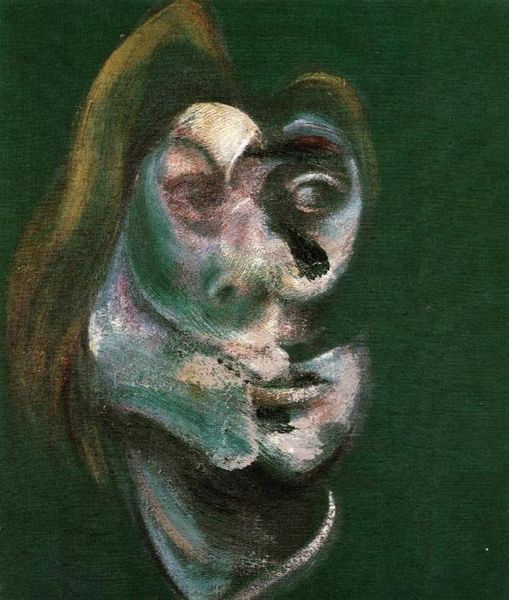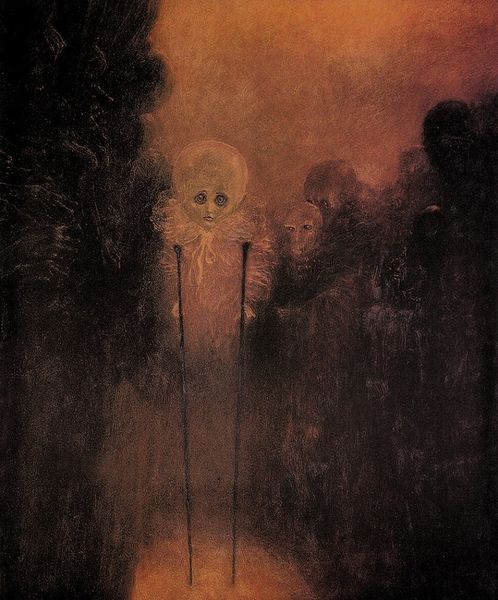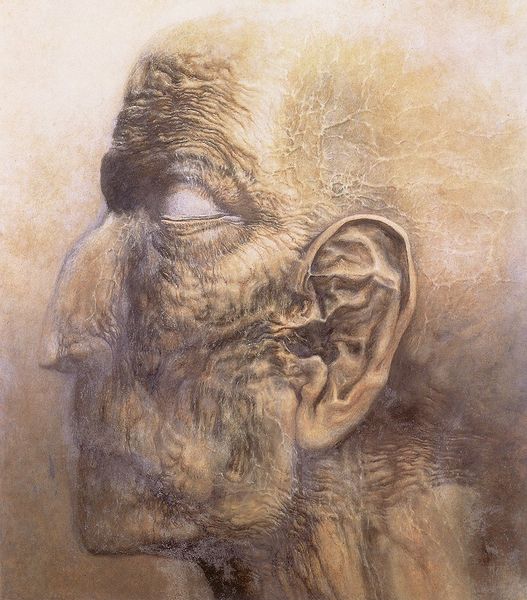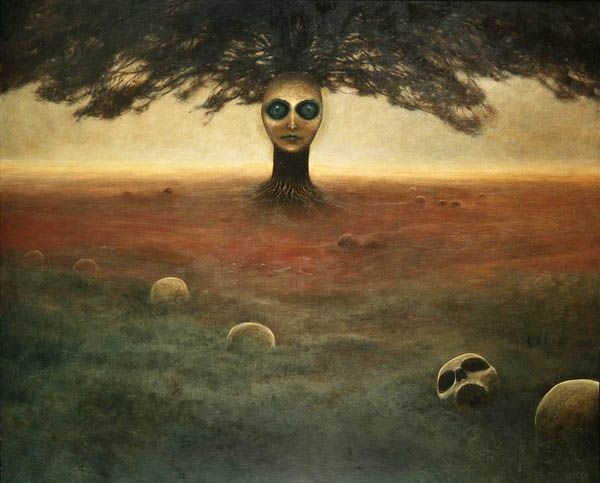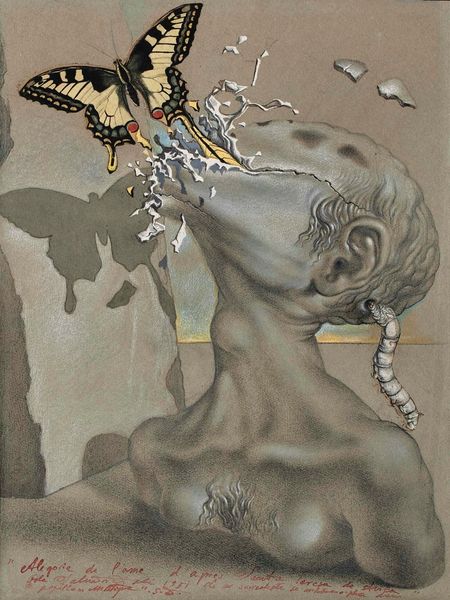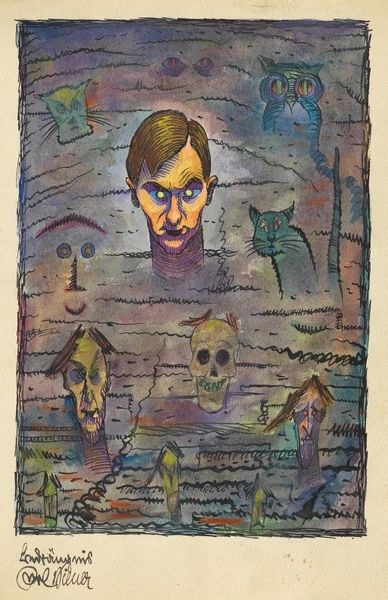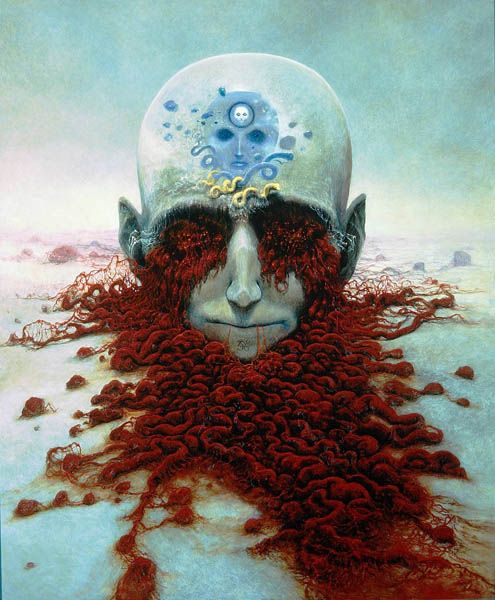
Copyright: Ernst Fuchs,Fair Use
Editor: Looking at this canvas, I immediately feel a sense of unease. The pale faces and the stark imagery... it’s quite unsettling, isn’t it? Curator: It certainly has a strong impact. What we're looking at is Ernst Fuchs's "The Temptation of the Victor," painted in 1949 using oil paints. It's fascinating how Fuchs engages with symbolist and surrealist tropes so directly post-war. Editor: The war seems deeply embedded here. But how does that conflict translate to this painted space and to the post-war viewers confronted with it? Are these haunting images somehow connected with broader trends in art and society at the time? Curator: That’s right. Remember, this was a period where artists grappled with representing trauma and questioning traditional narratives. The grotesque elements are not arbitrary; they serve to critique power and expose its dark underbelly. It also demonstrates the means Fuchs employed to communicate psychological turmoil, exploring complex spiritual themes by fusing techniques learned from masters like Van Eyck. Editor: And it is definitely present with that surreal layering of figures! You see the central skull being offered. How the hands interact, their gesture, creates an intriguing juxtaposition of temptation and mortality... Who exactly is the 'victor' being referenced? Is Fuchs critiquing those who claim victory without accounting for the war's true costs? Curator: Precisely. Fuchs himself belonged to the Vienna School of Fantastic Realism. Their interest in representing inner states, spiritual realities and even mythical elements ties in the art-making processes associated with Surrealism, albeit executed with Old Master techniques. This explains the emphasis on precision. Editor: Thinking about materiality, the smoothness of the oil paint, it gives a delicate almost porcelain-like quality, that is almost unsettling as it juxtaposes themes of temptation and decay, even challenging conventional painting with its non-traditional subject. But the subject seems fairly traditional nonetheless. Curator: Indeed! The work prompts crucial discussions regarding representation and spectatorship after global events. As for Fuchs, "The Temptation of the Victor," in his diverse production using diverse methods, stands as a potent symbol and offers insights into both past turmoil and present-day introspection about authority and its effects on human existence. Editor: Agreed. After discussing this artwork, it becomes clear that art challenges, evokes, and sometimes... just unnerves. It's an exploration to be had, always.
Comments
No comments
Be the first to comment and join the conversation on the ultimate creative platform.
